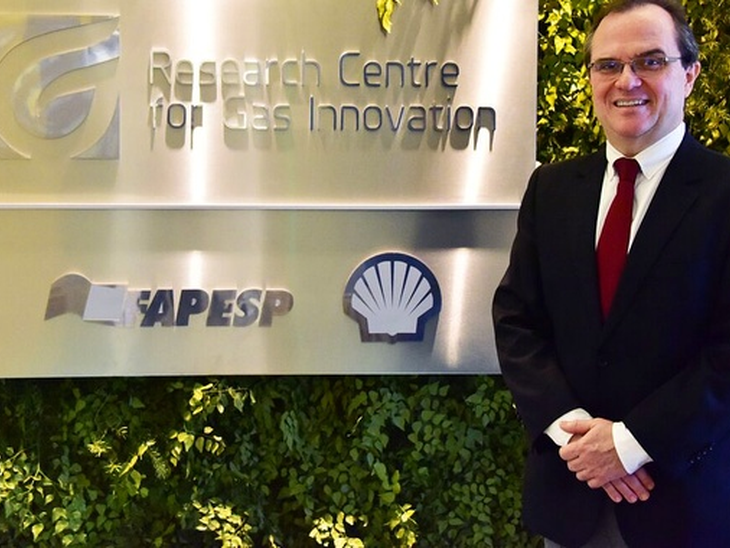
 Award
Award
T&B Petroleum/Press Office Fapesp

The Fapesp Shell Research Center for Gas Innovation (RCGI) was one of the winners of the 2019 ANP Technological Innovation Award, with a research project that will enable Brazil to monetize the natural gas exploited in the pre-salt reserves without one of its main contaminants. : carbon dioxide (CO2). The RCGI project won in Category II of the thematic area "Exploration and Production of Oil and Gas". In all, 147 research projects competed in five categories.
The RCGI project foresees the opening of caves in the salt layer, where natural gas would be confined for further separation of methane and CO2. This would occur through a gravitational separation technology developed and patent-pending by RCGI. "The cave is kept under high pressure until the CO2 goes into a supercritical and decent state. Methane, which remained in a gaseous state in the process, would then be removed, relieving the pressure in the cave and bringing the CO2 back to the state. This cycle would be repeated until the cave was completely filled with CO2, when it would then be sealed, "explains RCGI scientific director Júlio Meneghini (photo), professor at the Polytechnic School of the University of São Paulo (poli-USP). ).
Although caves already exist for this purpose, it is the first time that a technology for ultra-deep waters has been developed. "In addition to separating methane from CO2 in huge quantities at relatively low cost, we will be able to stock carbon and sell credits to the world," says Meneghini, adding that it is a disruptive innovation worldwide.
He points out that the award is an example of the importance of a research center like RCGI, which is essentially multidisciplinary. "Ideas like this are only conceived by multidisciplinary teams of mechanical engineers, chemists, naval engineers, economists, lawyers, among other professionals."
Pilot project - The team is now studying the construction of a pilot project in a cave to study on-site the separation conditions of the two gases. According to project coordinator Gustavo Assi, also a professor at Poli-USP, the goal is to complete the pilot cave plan within the next 24 months. "The construction and operation of a pilot cave is a large scientific and technological field experiment capable of providing detailed information on the physical processes that occur in large storage and separation caves," he said.
Besides Assi, the team is made up of professors Kazuo Nishimoto, Julio Meneghini, Claudio Sampaio, Marcelo Martins and André Bergsten - all from Poli-USP - and researchers Leandro Grandin, Carlos Bittencourt, Alvaro Maia da Costa, Pedro Maia da Costa, Edgard Malta, Felipe Ruggeri and Guilherme Rosetti, among other postdocs and associate researchers. In addition to Shell and USP, the project partners Modecom, Technomar, Agronautica and Granper.
About RCGI: FAPESP SHELL Research Center for Gas Innovation (RCGI) is a research center funded by the São Paulo State Research Support Foundation (FAPESP) and Shell. It has more than 320 researchers working in 46 research projects, divided into five programs: Engineering; Physicochemical; Energy and Economy Policies; CO2 abatement; and geophysics. The Center conducts advanced studies on sustainable use of natural gas, biogas, hydrogen, management, transportation, storage and use of CO2. Learn more at: https://www.rcgi.poli.usp.br/pt-br

Contact us